Reading Skills Normal Phonics Worksheets for Ages 3-8
11 filtered results
-
From - To
Unlock your child's reading potential with our tailored "Reading Skills Normal Phonics Worksheets for Ages 3-8." Designed by experts, these engaging activities focus on phonics, helping young learners recognize letters, decode words, and improve pronunciation. Ideal for home, school, or any learning environment, these worksheets make reading practice fun and effective. Each sheet features vibrant illustrations, interactive exercises, and clear instructions to guide parents and teachers in nurturing early literacy skills. Empower your child to become a confident reader with our comprehensive, easy-to-use phonics worksheets. Visit Kids Academy to get started today!
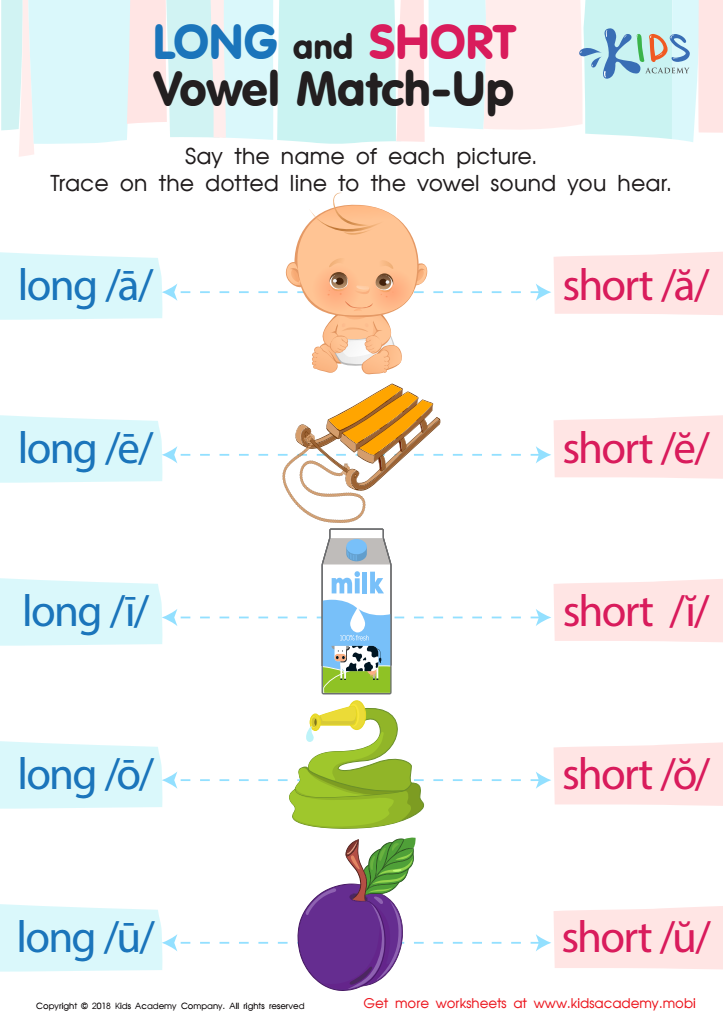

Long and Short Vowel Match up Reading Worksheet
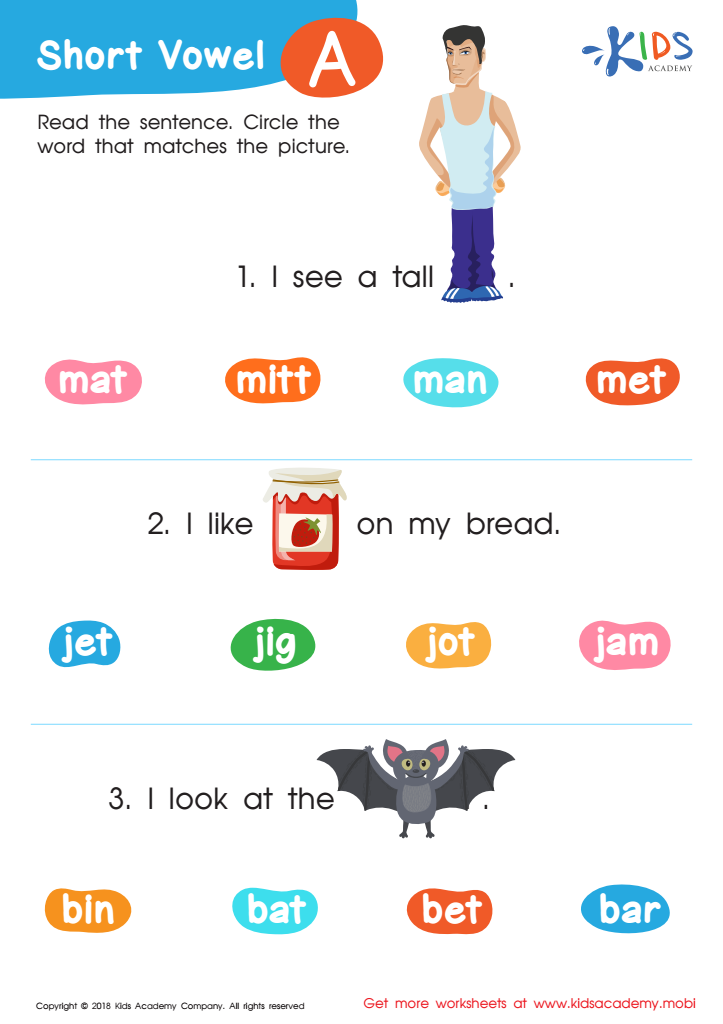

Short Vowel /a/ Worksheet
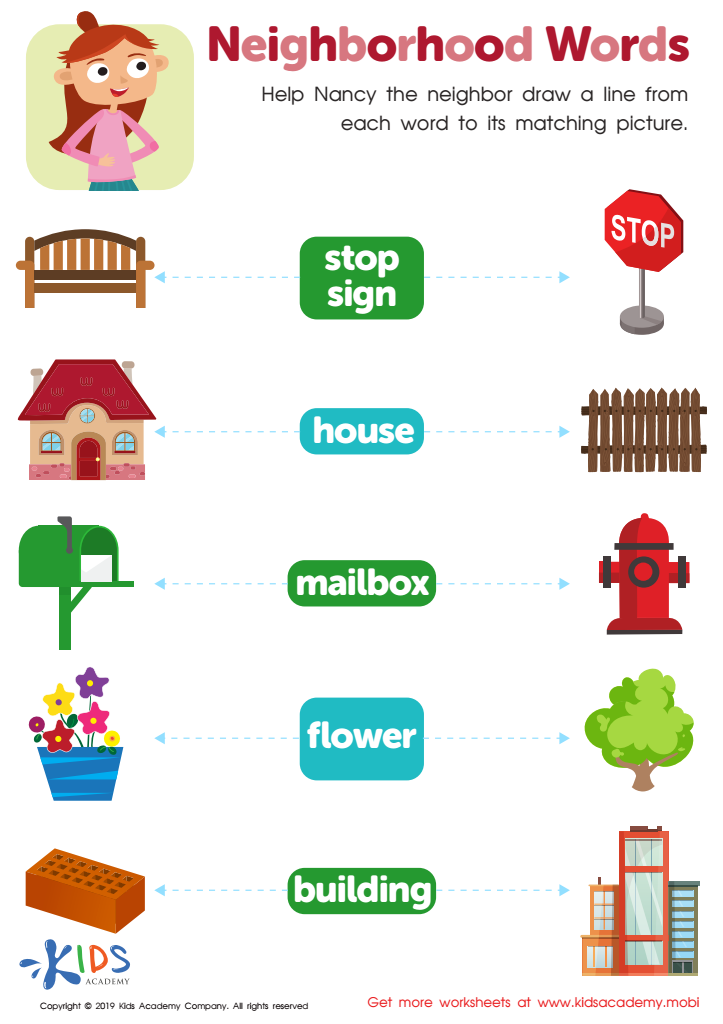

Neighborhood Words Worksheet


Twin Onset Worksheet
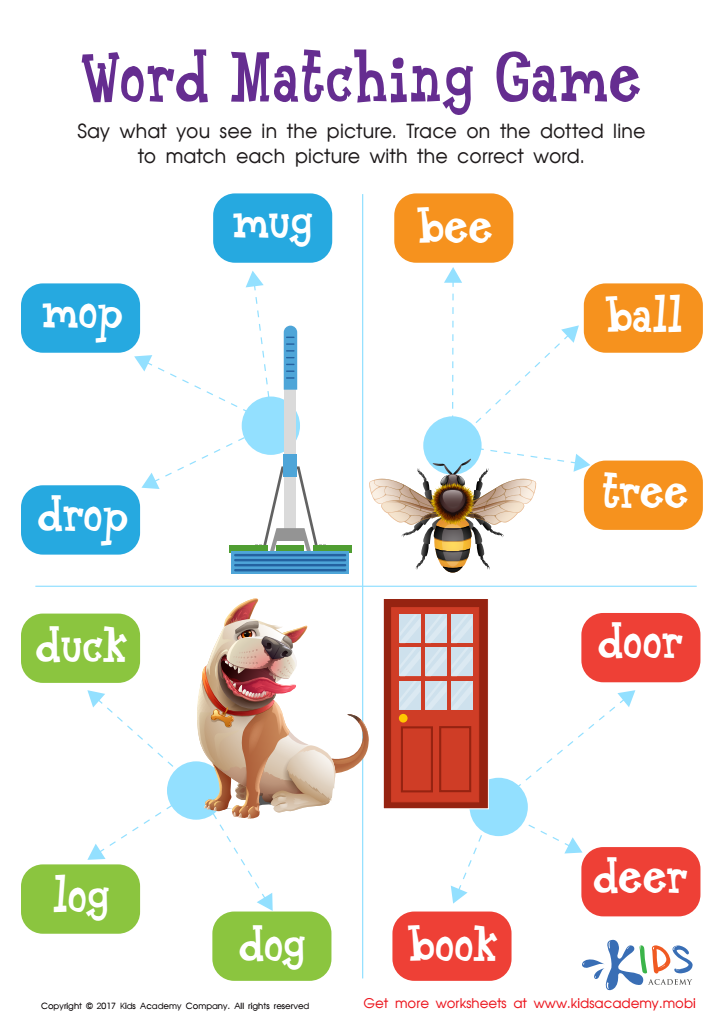

Word Matching Game Worksheet


Short Vowel Eggs Worksheet
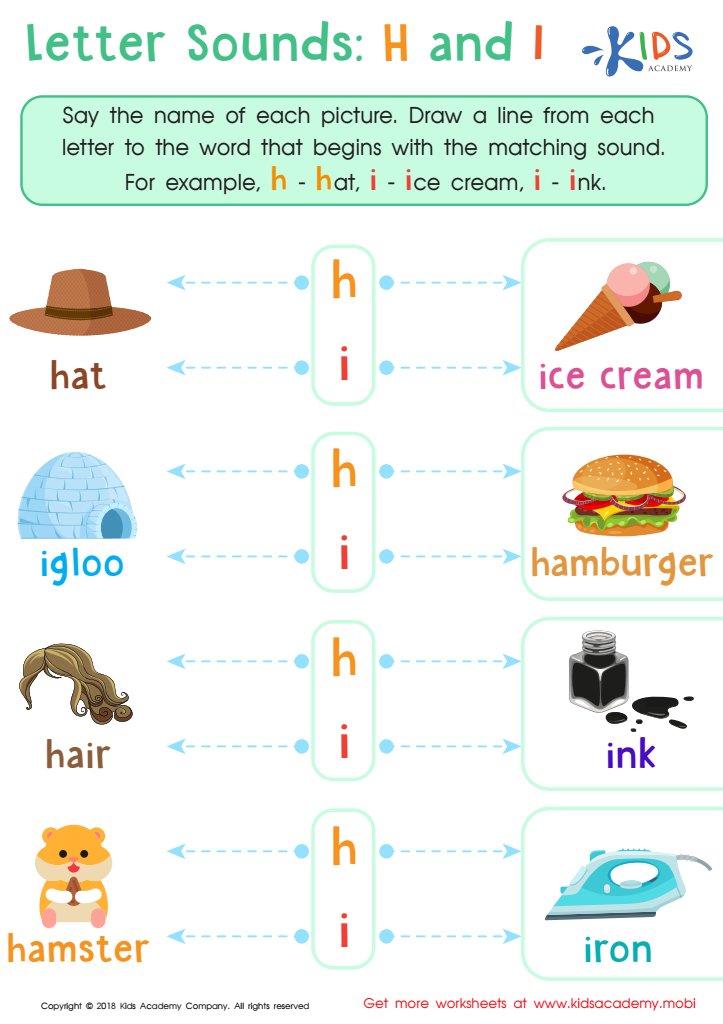

Letter H and I Sounds Worksheet
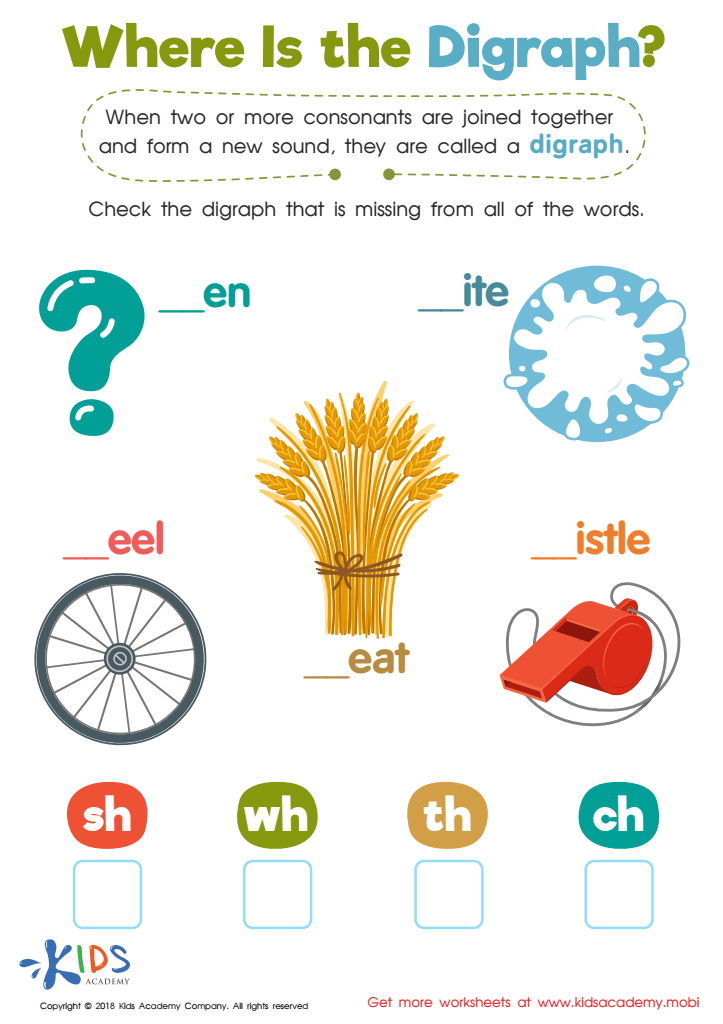

Where Is the Digraph? Worksheet
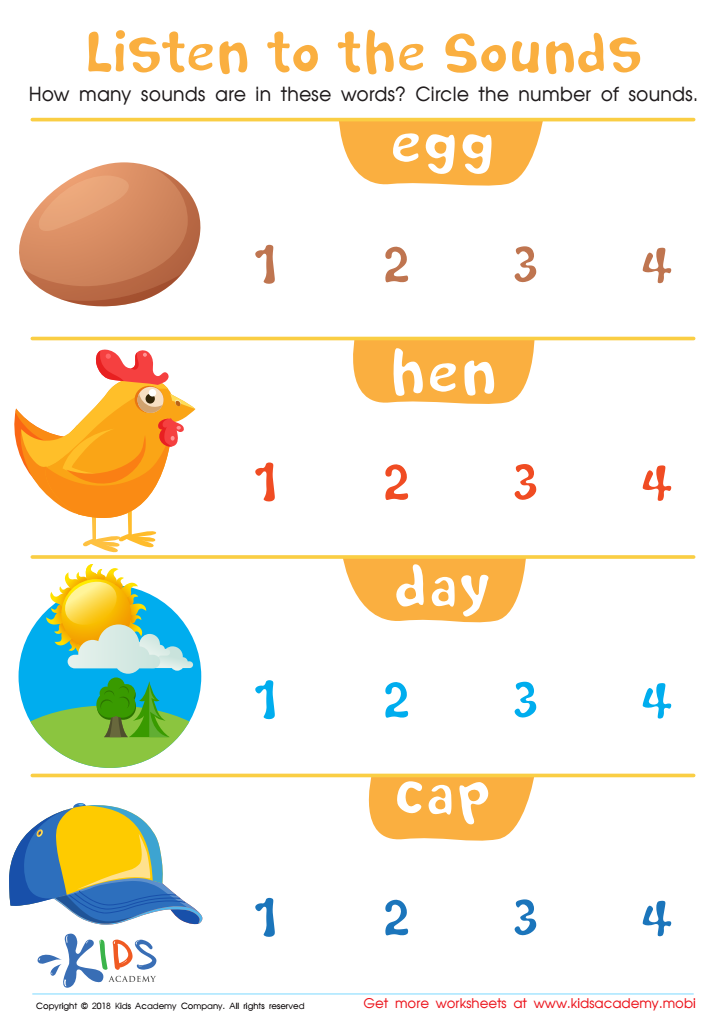

Listen to the Sounds Worksheet


Words with sound f Reading Worksheet
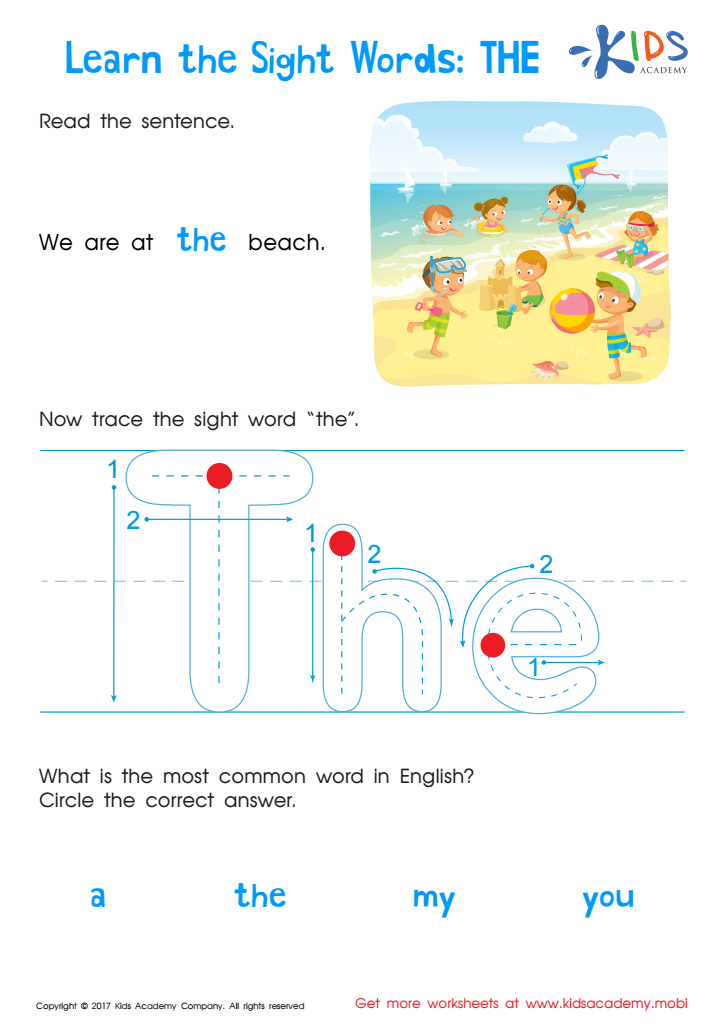

Sight Words: The Worksheet
Parents and teachers should prioritize Reading Skills Normal Phonics for ages 3-8 because this foundational stage is critical for a child's overall academic development. Phonics is the method of teaching reading by correlating sounds with letters or groups of letters. Mastering phonics enables children to decode words quickly and accurately, fostering fluent reading skills essential for comprehension. During this formative period, children’s brains are remarkably adaptable, making it an ideal time to establish strong reading habits and phonics knowledge.
Early phonics instruction helps children recognize and understand the relationship between spoken sounds and written words. Without this, children may struggle with reading later on, impeding their ability to access and engage with other areas of learning, from mathematics to science and history. Furthermore, solid reading skills contribute significantly to a child's self-confidence and enthusiasm for learning.
For parents and teachers, investing time and resources into phonics during these early years can set children on a path to lifelong learning. It equips them not just with the ability to read, but with the skills to think critically and pursue knowledge independently. By ensuring young learners have a strong phonetic foundation, we are paving the way for their future academic success and open doors to a world of opportunities.
 Assign to My Students
Assign to My Students






















